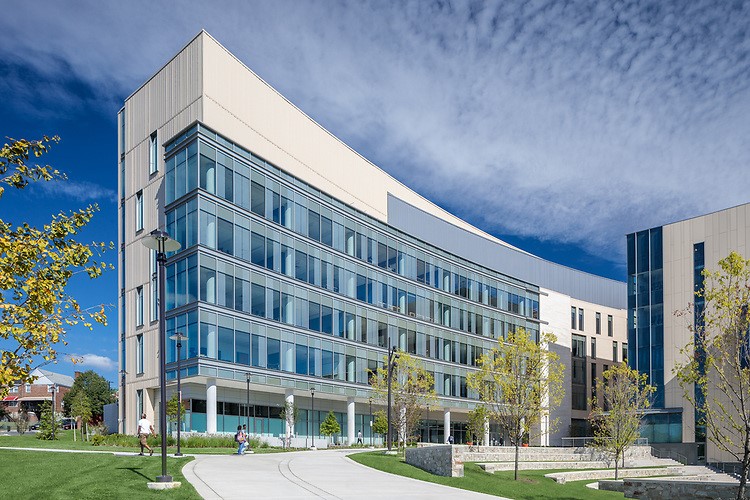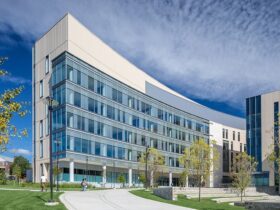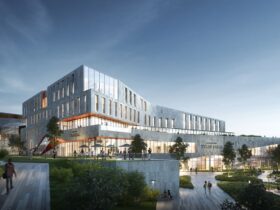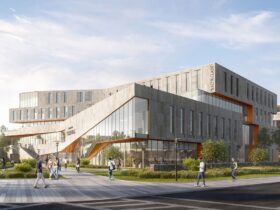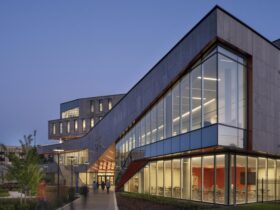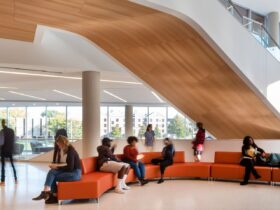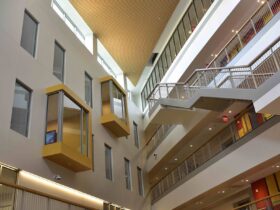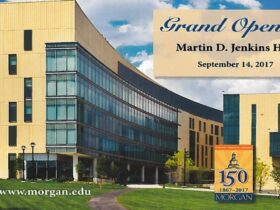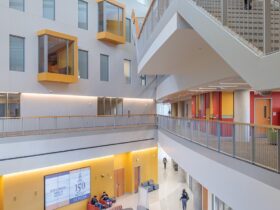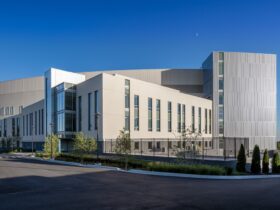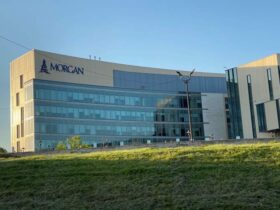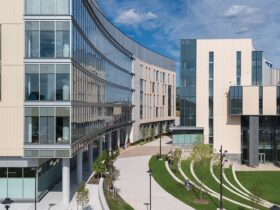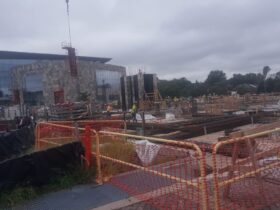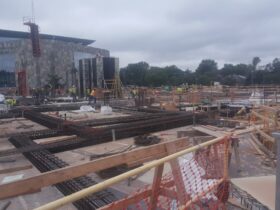Morgan State University
Morgan State University
Morgan State University is one of the nation’s premiers historically black institutions of higher education and the largest in Maryland. Home to student services and various business functions, the new Calvin & Tina Tyler Hall seamlessly bridges the historic neoclassical style academic quad and the modern campus commons, while establishing an iconic and uplifting university ‘front-door’.
Tyler Hall improves the student experience by establishing a welcoming entry point for current and prospective students and by gathering the university’s formerly dispersed student services and administrative functions. As a student’s first official point of contact, and their administrative interface, the building was designed to affirm MSU’s long-standing position as a preeminent public university.
Together with Teeple Architects out of Toronto, the GWWO-Teeple Architects team worked with Barton Malow/JLN Construction Services, LLC, Morgan State University, and the campus community in a participatory creative process to design a striking new gateway building that embodies the university’s heritage, identity, and mission. Key design principles include enhanced technology and an adaptable, sustainable design that supports staff and students well into the future. As the new home to student services and various business functions, it will foster a sense of community and synergy. The project will also provide additional space to support campus functions, staff, and future growth. The anticipated LEED Silver Certified building was completed in 2020.
Baltimore Maryland
The Behavioral Social Science Center (BSSC) is committed to supporting the educational and personal growth of our students with the unwavering support of our productive faculty and dedicated educators who are committed to providing opportunities for our diverse student population. Our faculty are known for their quality of teaching and research. For instance, our students have opportunities to actively engage with faculty on research projects and present their own research at local and national conferences, and engage in local internships. These opportunities not only support intellectual growth and development but also foster collaborative, sustainable partnerships with the local community in an effort to make our students more competitive for graduate school and career development.

